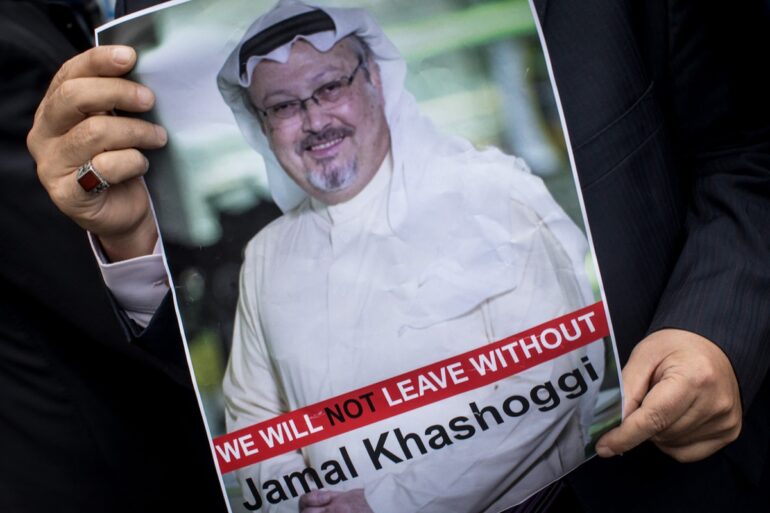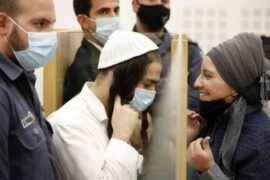Two weeks after the disappearance of journalist Jamal Khashoggi inside a Saudi consulate in Turkey, multiple reports indicate that Saudi authorities are ready to admit to his death but claim it the result of “an interrogation gone wrong.”
The objective of this story would be to protect the Saudi Crown Prince Mohammed bin Salman from direct blame.
Khashoggi, a high-profile journalist and Saudi insider highly critical of Prince Mohammed, has not been seen since entering the Saudi consulate in Istanbul on October 2 to obtain divorce papers.
Saudi authorities had initially claimed that Jamal Khashoggi left the consulate. But Turkish sources told the media that state authorities have audio and video recordings indicating that the journalist was killed inside the consulate and have passed the evidence on to Saudi Arabia, the United States and other countries.
Such a brazen political assassination would have had to have been ordered from the very top of the Saudi regime. Plans to interrogate or forcibly return Khashoggi to Saudi Arabia were reportedly approved by Prince Mohammed, the de facto Saudi ruler.
The objective of the operation was to silence a critic who had become a thorn in the side of the prince and his close associates.
US President Donald Trump backed the Saudi regime on Monday, suggesting that Jamal Khashoggi might have been the victim of “rogue killers.”
Having spoken to Saudi King Salman on Monday, the American president told reporters that “It wasn’t like there was a question in his mind. The denial was very strong. The king firmly denied any knowledge of it. He didn’t really know… maybe these could have been rogue killers. Who knows?”
Trump also dispatched Secretary of State Mike Pompeo to the Riyadh for talks with top regime officials. The purpose of the trip is clearly to ensure that nothing upsets the longstanding US relationship with Saudi Arabia, which has been Washington’s closest ally in the Middle East since the mid-1940s.
Maintaining the American-Saudi alliances is critical for Trump as his administration prepares to accelerate its confrontation with Iran. Washington is preparing to impose new sanctions on Iranian oil sales and requires the assistance of Saudi Arabia, the world’s largest oil producer, to manage supplies and prices.
Pompeo will also try to limit the damage to Saudi Arabia’s “Davos in the Desert” investment conference scheduled for October 23–25. A number of companies, media outlets and other guests have already pulled out following Khashoggi’s disappearance but, as of Monday, US Treasury Secretary Steven Mnuchin was still planning to attend.
While Trump’s “rogue killers” suggestion is clearly ridiculous, the hypocrisy of his liberal American critics is absurd. For decades, Democratic and Republican US administrations have maintained a close relationship with Riyadh, turning a blind eye to its anti-democratic repressive regime at home, as well as its crimes abroad.
Saudi authorities beheaded roughly 150 people in 2017 and executed another 48 during the first four months of 2018. Last year, as he was seeking to consolidate his power, Crown Prince Mohammed bin Salman launched the mass detention of leading figures within the Saudi royal family and ruling class.
Khashoggi, who had close ties to rival factions of the Saudi elites, had fled to escape the round-up.
While critics in the US congress are threatening to impose sanctions on Saudi Arabia over the Jamal Khashoggi affair, they have ignored Saudi Arabia’s criminal war in Yemen, being waged with American political support and military assistance. More than 16,000 people have already been killed in that conflict.
The trenchant liberal criticism of Trump over the Khashoggi assassination is bound up with tactical differences in the US political and military establishment over the president’s confrontational stance towards China and his unilateral abrogation of his predecessor’s 2015 Iran nuclear agreement.
In the end, once the Khashoggi affair has dropped from the headlines, there’s little doubt that Washington will come together to reaffirm relations with Saudi Arabia. A comment this week by Financial Times analyst Gideon Rachman was critical of Trump’s association with the Saudi crown prince, but concluded “do not expect radical shifts in US Middle East policy despite the Khashoggi scandal.”
Rachman declared that “Without a good relationship with Saudi Arabia, US influence in the Middle East will slide even further… The US, which used to be the undisputed kingpin in the region, currently has a much more limited set of relations than Russia.”
The cynical response to the murder of the Saudi journalist is a further warning of the anti-democratic and repressive methods being used to silence opposition, not only by autocratic regimes in the Semitic region and broader developing world, but perhaps also by the so-called democracies of the West.





